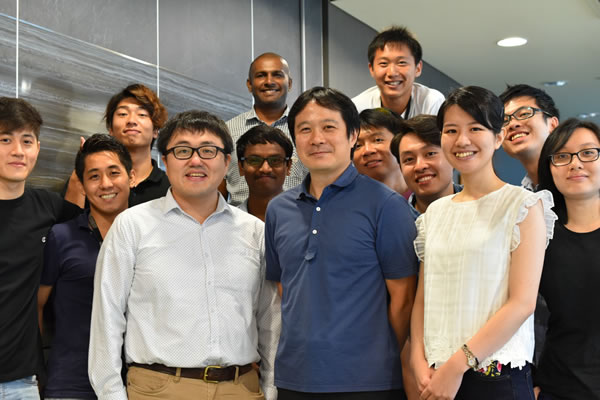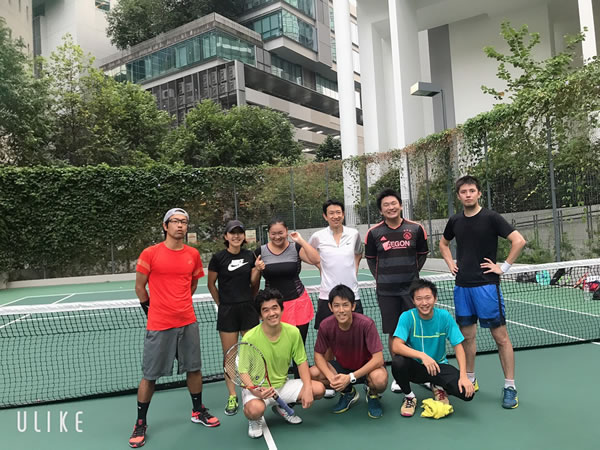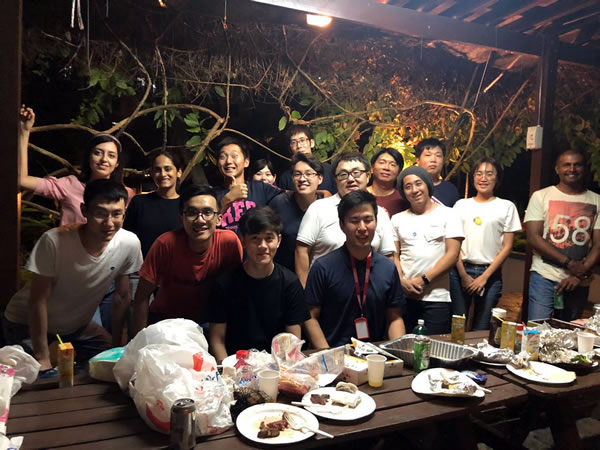Content of the study program
I conducted in-depth research on the electrical connectivity between liquid- and solid metal to implement electronic components under the supervision of Prof. Hashimoto, who conducts research on microfluids and digital fabrication at Singapore University of Technology and Design. Conventionally, soldering is used to add electronic components to a circuit board. However, this method cannot be applied to low thermal resistance boards, which are often used in flexible devices. Conductive adhesives that harden at room temperature may be considered, but these have high contact resistances. We focused on liquid-metal to solve these issues. Although liquid-metal has potential, its electrical properties on contact between liquid- and solid metal are unknown. Therefore, this research evaluated and measured the contact resistance using various methods of joining liquid- and solid metal as an in-depth study on the electrical connectivity between liquid- and solid metal.

Study results
At the lab, I had weekly 20-minute individual meetings with the professor, and biweekly group meetings (approx. 2 hours) for the entire lab where different people presented their progress. These meetings were very stimulating, especially since all the conversations within the lab were in English. As this was my first overseas stay, I had difficulty understanding what others were talking about, and it was even more difficult to share my opinions in English. However, I was gradually able to speak about the previous week’s progress, the content of my experiments, and my opinions with the professor in individual meetings. As for group meetings, I was able to understand the overall discussion and ask questions. However, people conducting different research gathered in the meetings, and I struggled to discuss topics in specialized areas in a wide range of fields. This made me realize the necessity to improve my English skills.
In my research, I used three different methods for contacting liquid- and solid metal, and measured the contact resistance. I was able to lower its value. I plan to submit my research results obtained through my overseas research to an English academic publication after I return to Japan.
My experience abroad
Singapore is home to people from many countries, and I was able to experience different cultures, which resulted in a great experience. I met many people whose native language was not English, and I was able to improve my communication in English by actively conversing without worrying about grammatical errors. I stayed at a share house, where I was able to communicate with my roommates in daily conversations, and I became friends with the landlord. As a result, I was able to communicate with many different people. I also made friends with members of the university tennis team and locals through my hobby of playing tennis. With these friends, I went to “hawker centres” where locals eat out, and they taught me where to find tennis shops. These insights can only be gained through locals. On the other hand, I found the local food to be greasy, and I appreciated the simplicity of Japanese food with white rice and vegetables. By living overseas, I re-learned the positive side of Japan, which was an additional incentive.

Influence on my future career
In Japan, not many people move on to a doctoral program after completing their Master’s. Prior to going abroad, I was thinking of working for a large company in Japan after graduating with my Master’s. However, when I saw researchers, whose minimum education was a Ph.D. candidate enjoying research in the Hashimoto lab, I started thinking about how enjoyable it might be to learn more in a doctoral program. While overseas, I also became friends with Japanese businesspeople who were relocated there by Japanese companies through tennis. As I talked with them, I thought that maybe life could be more rewarding to freely work in an overseas environment where your ability is valued than to work under the system in large Japanese corporations. Whatever the eventual outcome may be, after learning how people work overseas, I started to envision a future life with engaging activities involving the world stage.

Other comments
I deeply appreciate all the help I received from the SGU program and Prof. Hashimoto at the visiting university. Due to this support, I was able to focus on my research overseas without any issues. Under the direction of Prof. Hashimoto, I learned a variety of things and my research was quite productive. I am also grateful to others who supported me with my research abroad and allowed me to have invaluable experiences. I sincerely appreciate everyone who supported me. Thank you very much.


